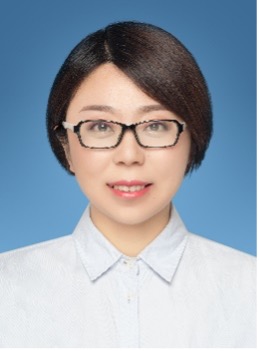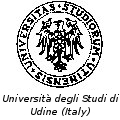Image credits:
Dense suspension of finite-sizeprolate ellipsoids settling in
still fluid. Authors: X. Jiang,
C. Xu, L. Zhao
Flyer:
Click here to download.Confirmed Keynote Speakers
Professor Ping Wang
Lanzhou University (CHN)

A direct numerical simulation of two-phase flow on an erodible particle bed based on the particle-point model and four-way coupling
Abstract:
Eulerian-Lagrangian simulations of particle-laden flows have been used in many physical contexts. Although particle-resolved simulation is the best since it accurately resolves particle-fluid interaction, it is still challenging so far due to the vast computation cost. A strategy based on the particle-point model, with acceptable accuracy and computing efficiency, is crucial for simulating multiphase flow. We proposed correct drag and lift force models for saltating particles according to the data from a particle-resolved simulation of two-phase turbulent flow over an erodible bed. Accordingly, we perform a direct numerical simulation of this two-phase flow based on the particle-point method, with the back-coupling from the particles to the fluid and particle-particle collisions. The force models and the schemes of the force calculation are compared with the particle-resolved direct numerical simulation under the same physical parameters. The results highlight the sensibility of particle transport at different locations to the force models.
Brief Bio:
Dr. Ping Wang received a PhD in Engineering Mechanics from Lanzhou University in 2011. After that, she visited Tsinghua University and worked at Korea Advanced Institute of Science and Technology (KAIST) as a postdoctoral Researcher. Wang's areas of expertise includes wall turbulence, particle-laden flow and environmental fluid mechanics (sand/dust storm). In recent years, she has published over 40 peer-reviewed articles in top journals of fluid mechanics and geoscience, including Journal of Fluid Mechanics, Physical Review Fluid, Physics of Fluids, Journal of Geophysical Research and International Journal of Multiphase Flow.
Lanzhou University (CHN)

A direct numerical simulation of two-phase flow on an erodible particle bed based on the particle-point model and four-way coupling
Abstract:
Eulerian-Lagrangian simulations of particle-laden flows have been used in many physical contexts. Although particle-resolved simulation is the best since it accurately resolves particle-fluid interaction, it is still challenging so far due to the vast computation cost. A strategy based on the particle-point model, with acceptable accuracy and computing efficiency, is crucial for simulating multiphase flow. We proposed correct drag and lift force models for saltating particles according to the data from a particle-resolved simulation of two-phase turbulent flow over an erodible bed. Accordingly, we perform a direct numerical simulation of this two-phase flow based on the particle-point method, with the back-coupling from the particles to the fluid and particle-particle collisions. The force models and the schemes of the force calculation are compared with the particle-resolved direct numerical simulation under the same physical parameters. The results highlight the sensibility of particle transport at different locations to the force models.
Brief Bio:
Dr. Ping Wang received a PhD in Engineering Mechanics from Lanzhou University in 2011. After that, she visited Tsinghua University and worked at Korea Advanced Institute of Science and Technology (KAIST) as a postdoctoral Researcher. Wang's areas of expertise includes wall turbulence, particle-laden flow and environmental fluid mechanics (sand/dust storm). In recent years, she has published over 40 peer-reviewed articles in top journals of fluid mechanics and geoscience, including Journal of Fluid Mechanics, Physical Review Fluid, Physics of Fluids, Journal of Geophysical Research and International Journal of Multiphase Flow.




